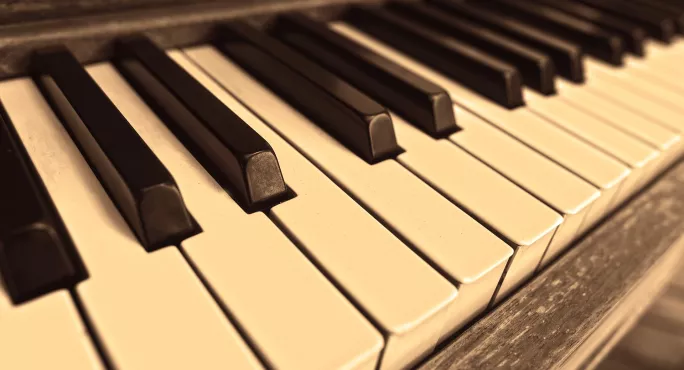- Home
- Music tuition denied to 100,000 children, report finds
Music tuition denied to 100,000 children, report finds

More than 100,000 pupils in Scotland are missing out on music tuition because of high charges or a lack of tutors, according to a report.
Today’s report, which is the first update since a previous analysis in 2003, shows how children in certain parts of the country find it harder to pursue an interest in music.
The Music Education Partnership Group and Creative Scotland report comes amid growing concerns in recent years over rising charges for instrumental music tuition. In January, the Scottish Parliament’s Education and Skills Committee recommended that music tuition should be free to all.
Parliamentary inquiry: ‘Music tuition should be free to all students’
Quick read: ‘Music boosts attainment - and transforms communities’
Long read: The case for creativity, culture and music in schools
The What’s Going On Now? report found that the “intrinsic value” of music was not understood.
The number of councils charging for instrumental music had risen from 15 to 25 since 2003-04, according to the analysis, which is also backed by the Heads of Instrumental Teaching Scotland, the EIS teaching union and the Royal Conservatoire of Scotland. The average fee has risen from £102 to £220 in that time, with the maximum charge increasing from £308 to £524.
The report said the difference in take-up between different councils ranged from an average of 8 per cent to around one quarter in the best-performing local authorities.
“There is no evidence pupils in some local authority areas are more likely to want music tuition than pupils in other areas,” it states.
“Therefore, our best estimate of potential demand is the proportion of pupils accessing instrumental music tuition in the area with the highest proportion of uptake, currently around 25 per cent. This suggests that...the unmet demand continues to exceed 100,000 young people.”
However, the report also showed that over 60,000 young people received music tuition in 2017-18, an increase of around 10 per cent since 2002-03.
The report found that the Scottish government’s Youth Music Initiative ensured more than 200,000 pupils got an experience of music tuition within school every year, but that more should be done to build on this.
It added: “There is significant unmet demand for music tuition from pupils.”
The report showed that music is one of the most popular subjects on the school curriculum - it is the sixth-most popular Advanced Higher in Scotland, whereas in England music is around the 25th most popular A-level subject.
Music gives Scotland ‘a distinctive voice’
John Wallace, chair of the Music Education Partnership Group, said that Scotland’s “incredibly rich” musical culture was in need of protection.
“It gives Scottish identity its focus, has a beneficial effect on everything it touches and affords us a distinctive voice internationally,” he said.
“The music industry is a burgeoning sector full of opportunity. As an effective investment in the future of our young people, Scotland needs to maintain, sustain and develop its music education.”
EIS general secretary Larry Flanagan said the report provided “stark illustration” of the damaging impact of cuts to instrumental music.
“The report makes some welcome contributions, but it is essential we go much further in protecting and expanding instrumental music.
“As we have seen in recent local authority budget decisions, instrumental music is often one of the first areas targeted when education cutbacks are being considered.”
Mr Flanagan added that the “postcode lottery of provision across the country” had the “inevitable result” that “those from less affluent backgrounds [are] more likely to miss out on the opportunity to learn music”.
Education secretary John Swinney said: “As set out in the programme for government, we are committed to working collaboratively to find solutions to help ensure instrumental music remains accessible to all.”
He added: “I welcome the research and will give full consideration to its recommendations.”
A spokesman for local authorities’ body Cosla said: “No council takes the decision to charge lightly and all councils recognise the contribution instrumental music tuition makes.”
Last week, reports emerged that new Cosla guidance backed the right of councils to scrap free school music tuition for pupils.
Keep reading for just £1 per month
You've reached your limit of free articles this month. Subscribe for £1 per month for three months and get:
- Unlimited access to all Tes magazine content
- Exclusive subscriber-only stories
- Award-winning email newsletters



